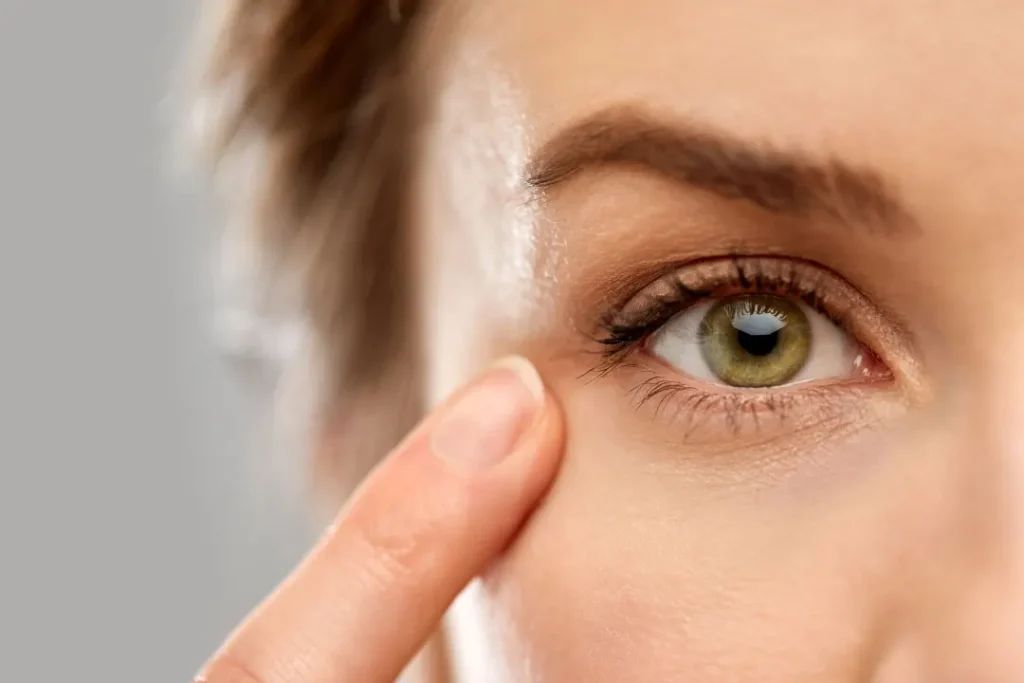Looking for the best omega 3 supplement for eyes? Incorporating omega 3s into your diet has been linked to improved eye health, making it a popular choice for those looking to support their vision. To help you make an informed decision, we’ve conducted a comprehensive analysis of five well-known omega 3 fatty acid supplements. By reviewing the benefits and potential drawbacks of each of these supplements, we hope to provide you with a clearer picture of which is the best omega 3 supplement for eyes.
Your eyes are more than the window to your soul; they’re your window to the world around you. They take in light and transmit visual information to your brain. Your eyes are also a window to your health, acting as an early warning system by alerting you to possible problems such as stroke or diabetes. That’s why it’s important to find the best omega 3 supplement for eyes. In this article, we’ll analyze the top five brands, examining the pros and cons of each.
You May Also Like:
The Best Organic Women’s Supplements to Take
Breaking the Silence: Understanding the Connection Between Menopause and Hair Thinning
Revitalize Your Vision: Discover the Best Omega 3 Supplement for Eyes is an original (HerHealthWatch) article.
Om-eye:
Why take an omega 3 supplement?
Omega 3 fatty acids may benefit your heart, brain, skin, joint, and immune health, as well as your eyes. Let’s specifically focus on their impact on vision. Omega 3 boosts eye health in several ways, including:
- Reducing the risk of macular degeneration: Omega 3 possesses anti-inflammatory properties that protect the retina. This layer of photoreceptor and glial cells within the eye captures incoming light and transmits information to the brain. The retina has a high concentration of omega 3, which helps keep it moisturized and prevents macular degeneration and other retinal diseases. Omega 3s may also inhibit the growth of abnormal blood vessels associated with macular degeneration.
- Helping prevent glaucoma: Omega 3 reduces the risk of high eye pressure, a condition that can lead to glaucoma. Omega 3 fatty acids help increase ocular blood flow and improve optic neuroprotective function.
- Preventing and treating dry eye syndrome: Omega 3 may alleviate the itching and burning resulting from insufficient tear production. Researchers found that those who consume omega 3 fatty acids have a lower risk of developing dry eye syndrome.
- Improving vision acuity: By reducing the risk of cataracts, the best omega 3 supplement for eyes can help reduce the age-related effects on your ability to discern shapes and details from a distance.

Unlike some essential nutrients, your body cannot manufacture omega 3 fatty acids, so you must get them from the foods you eat or dietary supplements. Most people in the U.S. are fish-ually impaired… meaning we don’t get nearly enough seafood in our diet to meet our omega 3 needs. Therefore, finding the best omega 3 supplement for eyes is eye-deal. Here’s a list of the top five brands:
- Lipotriad Dry Eye: Lipotriad‘s omega supplement costs about $30 for a month’s supply (at two softgels a day.) It promises to enhance tear quality and contains 1400 mg of triglyceride-based omega 3 per dose.
Pros: The product is plant-based, so it doesn’t leave a fishy aftertaste.
Cons: The Food and Drug Administration issued a warning to Lipotriad in 2021 for overstating its effectiveness and not providing adequate directions for its use.
- Doctor’s Advantage Omega Shield: This brand provides a blend of omegas 3, 6, and 9, including natural triglyceride-based omega 3 fish oil, flaxseed oil, turmeric root, and borage oil. The recommended dosage is three softgels a day, so a $30 bottle will only last you 20 days.
Pros: The company offers free shipping when you buy a 3- or 6-month supply. The product is third-party tested for ingredient purity.
Cons: As the product contains fish oil, some users still complain of a slight fishy aftertaste.

- Nature’s Bounty Fish Oil: Nature’s Bounty Fish Oil 1200 mg contains EPA and DHA, two essential omega 3 fatty acids. The product is third-party tested and comes in a variety of package sizes, ranging from 90 to 320 softgels.
Pros: The softgels are available at most pharmacies and online, costing about 50 cents per serving.
Cons: Nature’s Bounty Fish Oil recommends taking one softgel three times a day with meals. It may be inconvenient to remember to take the proper dosage every day. The company also claims the softgels are coated to minimize “fish burps,” but like most fish oil supplements, once the coating dissolves, that fishy aftertaste remains.
- MegaRed Omega-3 Krill Oil: These 1,000 mg softgels contain phospholipids that help protect your cells against environmental damage. The omega 3 in this supplement is derived from krill sourced from the Antarctic Ocean, where the crustacean is abundant. A two-month supply of this product costs about $60, or 50 cents per daily dose.
Pros: Unlike fish oil omega 3 supplements, MegaRed Omega-3 Krill Oil does not leave a fish aftertaste.
Cons: While the parent company, Schiff, has established a scientific advisory panel to review its products, we could not find evidence of third-party testing to ensure purity and effectiveness. Additionally, this omega 3 supplement contains 188 mg of DHA and EPA fatty acids, which falls short of the 250 to 500 mg recommended in the best omega 3 supplement for eyes.
- Kori Krill Oil: These easy-to-swallow softgels are sourced from the pristine Antarctic Ocean, and since the omega 3 is derived from krill, it leaves no fishy aftertaste. It also contains 250 mg of both EPA and DHA, along with phospholipids to increase its absorption rate. A month’s supply of Kori Krill Oil costs about $20.
Pros: Kori Krill Oil receives exceptional online reviews for its purity and commitment to sustainability practices. The company has partnered with the Aker BioMarine Antarctic krill fishery, which holds the distinction of being the only fishery to receive consecutive A-ratings from the Sustainable Fisheries Partnership.
What makes this our pick for the best omega 3 supplement for eyes is that it contains choline, an essential ingredient for the production and secretion of tears by the lacrimal glands.
Cons: Kori Krill Oil contains sorbitol, which is used as an ingredient in the softgel capsules for maintaining moisture levels in the gelatin to ensure product quality and stability. Additionally, since krill is a crustacean, it’s not recommended for people with seafood allergies.
Revitalize Your Vision: Discover the Best Omega 3 Supplement for Eyes is the (HerHealthWatch) report.

Eye-opening supplements
These are only the top five of what’s considered a saturated market for the best omega 3 supplement for eyes. Our top two choices come from krill oil due to its advantages of faster absorption rate, lack of fishy aftertaste, and a cleaner source of omega 3 fatty acids.
Maintaining our top position as the best omega 3 supplement for eyes is Kori Krill Oil. It gets high marks for providing all the krill benefits and being the most sustainably sourced.
You only have one set of eyes, and they need to last a lifetime. All too often, people wait until their eyes are failing, only to regret not taking an omega 3 supplement in hindsight. It’s never too early to focus on eye health.

Further reading for additional reference:
Cleveland Clinic: Eyes
Harvard Health Publishing: Warning signs of a serious eye problem
National Eye Institute: Keep Your Eyes Healthy
Important Note: The information contained in this article (Revitalize Your Vision: Discover the Best Omega 3 Supplement for Eyes) is for general informational purposes only, and should not be construed as health or medical advice, nor is it intended to diagnose, prevent, treat, or cure any disease or health condition. Before embarking on any diet, fitness regimen, or program of nutritional supplementation, it is advisable to consult your healthcare professional in order to determine its safety and probable efficacy in terms of your individual state of health.
Regarding Nutritional Supplements Or Other Non-Prescription Health Products: If any nutritional supplements or other non-prescription health products are mentioned in the foregoing article, any claims or statements made about them have not been evaluated by the U.S. Food and Drug Administration, and such nutritional supplements or other health products are not intended to diagnose, treat, cure, or prevent any disease.


